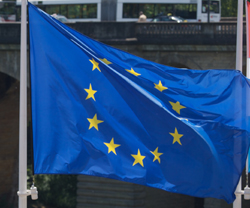Politics
EU wants to limit Supervisory Board mandates
 In Europe it is common practice for supervisory-board members to take on different assignments in parallel in various companies. To ensure that multiple-board members are not overwhelmed and have sufficient time to oversee their respective companies, European internal-market Commissioner Michel Barnier has now compiled a Green Paper in which he demands the limitation of mandates. Barnier did not give a concrete figure. Last year he wanted to limit the number at banks to a maximum of about three. In Germany the number of supervisory-board posts permitted is limited by law to ten. The German Corporate Governance Code recommends no more than three seats on various supervisory bodies. Barnier also calls for greater diversity in the supervisory bodies and has announced further steps such as introducing a quota for women. Here he agrees with EU Justice Commissioner Viviane Reding, who had already called for a quota for women. Another demand of Barnier’s is for the remuneration policies of companies in future to be the subject of voting at general meetings - in Germany and the United Kingdom this is already common practice. Barnier’s Green Paper is now the basis of discussion for a bill yet to be worked out.
In Europe it is common practice for supervisory-board members to take on different assignments in parallel in various companies. To ensure that multiple-board members are not overwhelmed and have sufficient time to oversee their respective companies, European internal-market Commissioner Michel Barnier has now compiled a Green Paper in which he demands the limitation of mandates. Barnier did not give a concrete figure. Last year he wanted to limit the number at banks to a maximum of about three. In Germany the number of supervisory-board posts permitted is limited by law to ten. The German Corporate Governance Code recommends no more than three seats on various supervisory bodies. Barnier also calls for greater diversity in the supervisory bodies and has announced further steps such as introducing a quota for women. Here he agrees with EU Justice Commissioner Viviane Reding, who had already called for a quota for women. Another demand of Barnier’s is for the remuneration policies of companies in future to be the subject of voting at general meetings - in Germany and the United Kingdom this is already common practice. Barnier’s Green Paper is now the basis of discussion for a bill yet to be worked out.
Lobby against the banks
In April, around 30 European associations and non-governmental organizations (NGOs) launched Finance Watch, to match wits with the banking world in Brussels. Members of the new counter-lobby include Oxfam, Transparency International, the European small-investor association Euroinvestors, the European Trade Union Confederation and the European consumer association BEUC. The aim of the new organization is to address the lack of expertise outside the financial industry and give European parliamentarians access to sound financial expertise. Last summer MEPs themselves had recognized their lack of knowledge in the area of the financial industry as a threat to democracy and called for the formation of an anti-lobby. In the new Brussels organization, due to start in summer with around ten permanent employees, parliamentarians may sit only on the advisory board, though individuals can also be members of Finance Watch; they must not themselves, however, be involved in the financial sector. It is not clear yet how the new organization is to be financed.
Going it alone in bank regulation?
International politics, i.e. the G20, has actually clearly agreed to banking regulation in the form of the so-called Basel III regulations. These stipulate that credit institutions must as from 2013, and at latest by 2018, hold progressively more and better-quality capital. There are also rules on indebtedness and quickly available money. In Europe moves are now under way to implement these rules. Internal-market Commissioner Michel Barnier wants to prescribe the core standards by regulation. An appropriate bill could be ready in June. The United States have, however, set partly contradictory rules on the road with the Dodd-Frank laws. Moreover, the Republicans in Congress are torpedoing more stringent provisions for the U.S. financial world. So the European industry fears that the U.S. will not introduce Basel III, and if so, then with some delay. This in turn would give European banks an excuse not to introduce the new rules, since that would distort competition. The International Monetary Fund criticized the under-capitalized European banks in its mid-April financial stability report. Compared to the European banks, the Americans were already further advanced with financial reform, it said. Nevertheless, the U.S. banks could refuse to implement Basel III, which would call this "international lowest common denominator" as a whole into question. The failure of Basel III would threaten a patchwork of national regulatory rules. But time is running out: according to the Basel Committee, the global financial world needs more than 500 billion euros over the next eight years to meet the Basel-III rules. The EU Commission is now thinking of providing their bill for new capital requirements with a clause that says that they need only be implemented if the top 20 industrialized and emerging countries (G20) introduce them.















